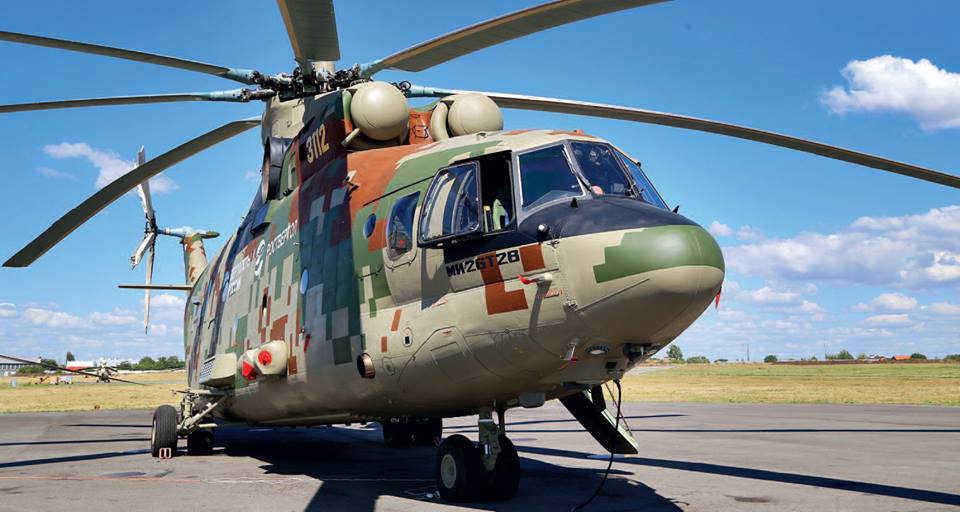It is now time for the Mi-26T2V to be handed over to the Ministry of Defence of the Russian Federation for joint official tests.
The prototype of the Mi-26T2V, the upgraded version of the Mi-26 helicopter, has completed the preliminary flight tests at the Mil Moscow Helicopter Plant.
The new Mi-26T2V performed its maiden flight in August 2018 and was then immediately revealed to the public during the International Military-Technical Forum ARMY 2018, that same month. The preliminary flight tests have been extremely successful, and it is now time that the machine is handed over to the Ministry of Defence of the Russian Federation for joint official tests, Russian Helicopters (part of the Rostec State Corporation) said.
The prototype of the original Mi-26 first flew on Dec. 14, 1977. Mil built almost 300 Mi-26 helicopters, most of which have become of age. For this reason, the Russian Ministry of Defence made a request for a redesigned, modernized version of the Mi-26.
“The customer requested that Mi-26T2V should ensure completion of tasks even in regions with complex physical, geographical, and adverse climatic conditions, at any time of the day, at equipped and unequipped routes, or even without routes, and on featureless terrain, in conditions of fire and information counteraction of the enemy,” says Russian Helicopters.
According to Scramble Magazine Facebook Page, this new Mi-26 is supposed to be able to operate in any, even the most remote, environment, in every weather type, during day and night. To allow this, the Mi-26T2V is equipped with a modern integrated NPK90-2V avionics suite, which significantly simplifies the piloting of the helicopter. The latest avionics system allows following the route in automatic mode, coming to a pre-set point, performing approach and final approach maneuvers, and returning to the main or alternate aerodrome. The helicopter is also equipped with a digital flight center, provision for the use of night vision goggles (NVGs), and new energy-absorbing seats for the crew. Externally, the Mi-26T2V carries a new airborne defense complex called ‘Vitebsk’ that not only detects a threat to the helicopter but also repels attacks.

Photo by Russian Helicopters

